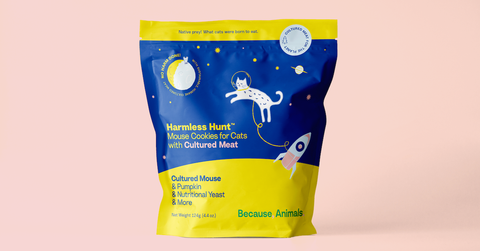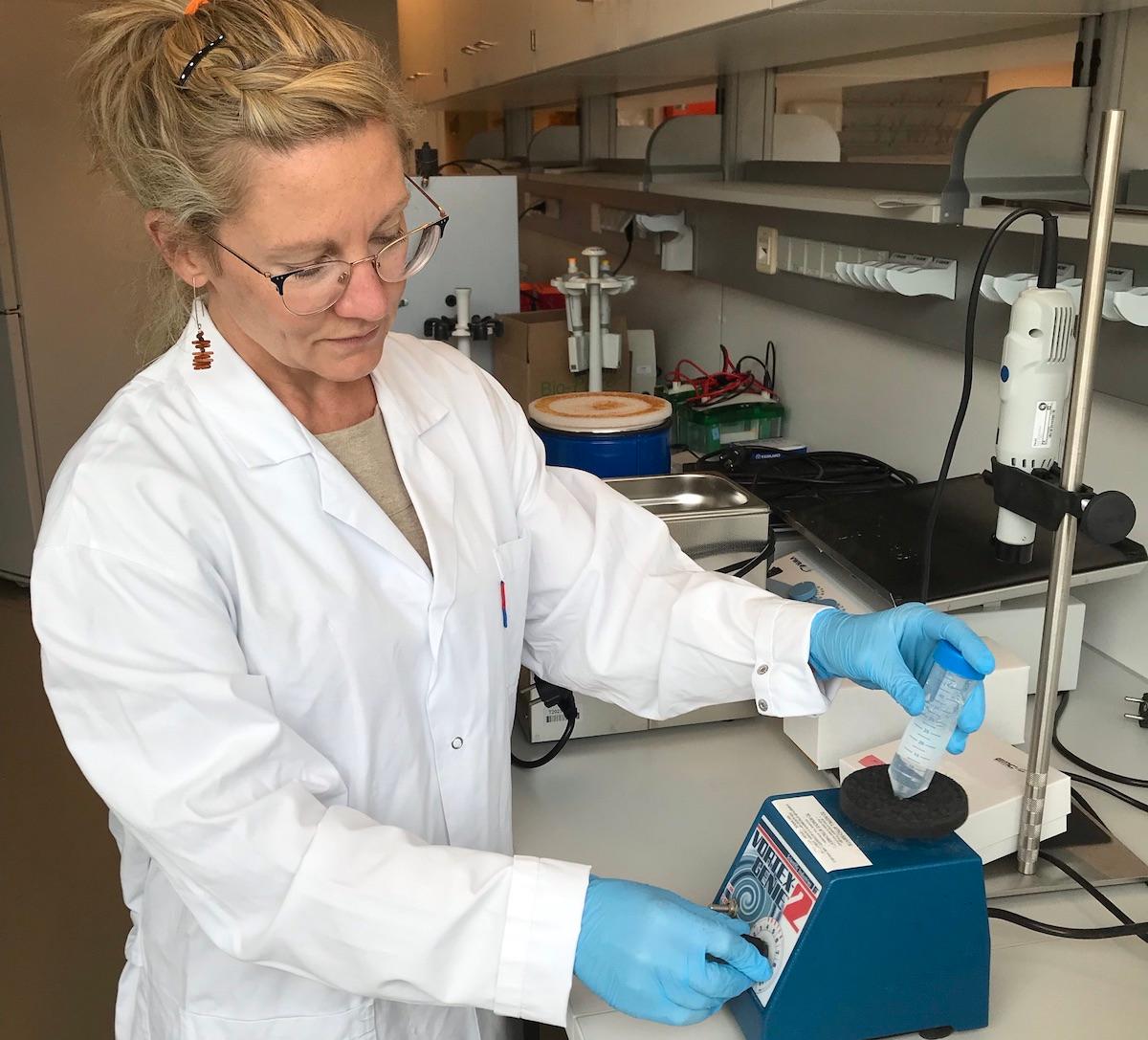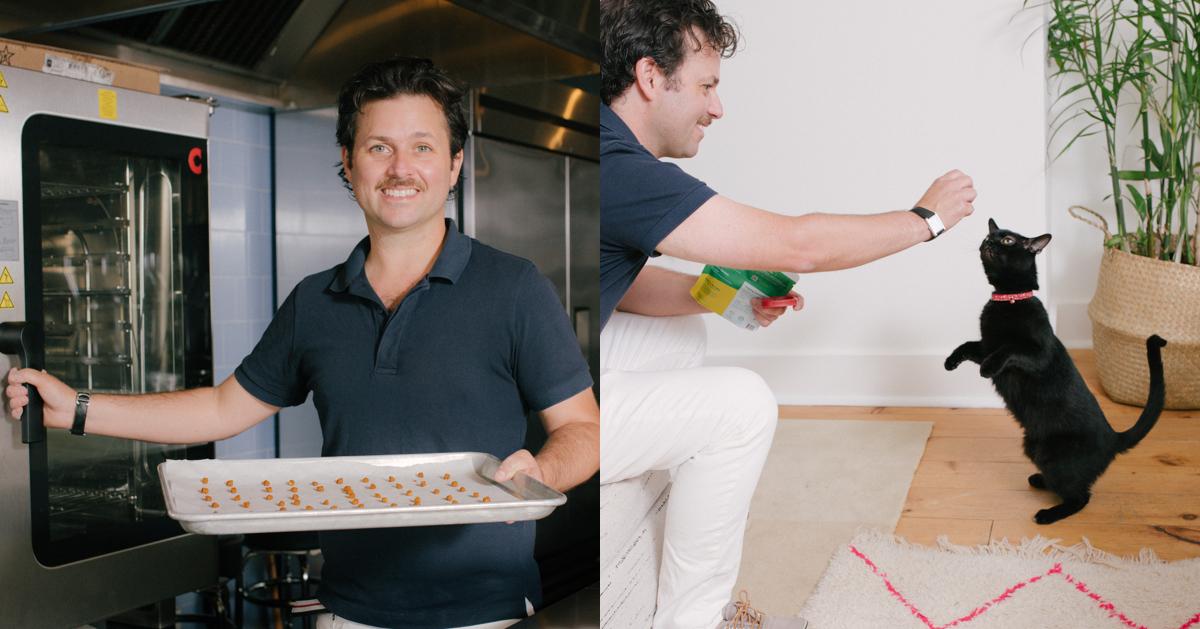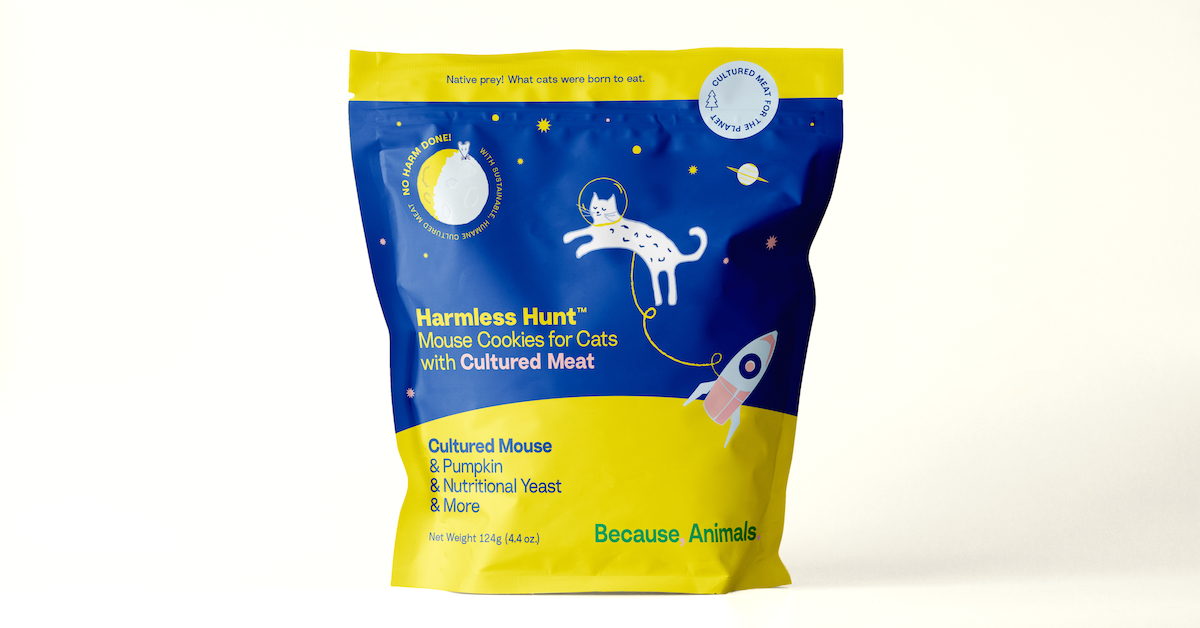Startup’s Lab-Grown Mouse Meat Cat Treats Could Change the Pet Food Industry (Exclusive)
Published Aug. 26 2021, 1:12 p.m. ET

Have you ever thought about exactly what’s in your pet’s food? It’s a lot of leftover livestock parts, vague “meat byproducts,” and other animals who you’d never intentionally feed to your dog or cat — but it doesn’t have to be that way. And so, pet food company Because, Animals is preparing to disrupt that with its unique new product: cultured mouse treats for cats.
Getting lab-grown meat products onto the market isn’t all that simple, but Shannon Falconer, PhD, the CEO and co-founder of Because, Animals, tells Green Matters that the company’s mouse-based treats — which do not hurt any mice in their production process — are expected to enter retail next year. We recently caught up with Falconer to learn more about the company, which she says is the first to successfully produce lab-grown meat for pets.

Shannon Falconer, co-founder of Because, Animals.
The pet food supply chain is rife with issues — and cat and dog food is made of some nasty stuff.
As Shannon Falconer tells Green Matters on a recent phone call, “more than a quarter of the environmental effects of animal agriculture are directly attributed to the foods Americans feed their cats and dogs.”
Dog and cat food often comes from rendering plants, which essentially melt down animals and body parts that are not safe for human consumption. Most of that is the leftover, diseased, or cancerous parts of animals that humans typically eat, such as chickens, lambs, cows, and fish. But often, roadkill, zoo animals, and euthanized cats and dogs wind up in pet food as well, according to Dogs Naturally Magazine.
“The animal agriculture industry is basically maintained as a result of being able to sell all this otherwise unsellable meat to pet food,” Falconer explains. “The industry could not exist in the absence of having this outlet.”
Because, Animals is making lab-grown mouse treats for cats.

Joshua Errett, co-founder of Because, Animals.
Long before getting her PhD in microbiology, Falconer was a passionate animal rescue volunteer, and mama to multiple pets and foster pets. But because Falconer does not eat meat, it always bothered her that she had to purchase meat for her dogs and cats. “Virtually, I have to support this industry that I otherwise would not be supporting,” she says.
So, while working at Stanford as a postdoc, she “decided to dedicate [her] scientific training to take the animals out of the supply chain” from the pet food industry. It led her to found Because, Animals in 2016 along with her business partner Joshua Errett.
The company currently sells plant-based dog and cat treats that feature two key ingredients: nutritional yeast and probiotics, both of which are grown in bioreactors, and commonly consumed by humans. And she hopes recognizing that connection will help show customers that feeding lab-grown food to their companion animals isn’t as weird as it may sound.

In 2019, Falconer and Errett started working on their newest lab-grown item: mouse treats for cats. Here’s how the treats, which were formulated along with a veterinary nutritionist, are made: First, cells are painlessly harvested from a mouse who is under anesthesia. Then, the cells are placed in a bioreactor in a commercial kitchen that produces food for humans (such as nutritional yeast and probiotics).
In the bioreactor, the cells are fed a combination of nutrients, which causes the cells to grow into a product that is “100 percent meat, simply made without the animal.”
Making lab-grown meat for pets is a bit easier than doing so for humans, as all that really matters is the nutrient profile. “Where humans want a steak that looks like a steak and sits on the grill like a steak, we are only concerned about the nutritional value of cells,” Falconer explains. “We are not concerned about the structural or or even visual quality of that meat, so that makes it a lot easier to create.”
Why is Because, Animals making cat food out of lab-grown mouse meat?
Pet food is nothing like what dogs, cats, nor their ancestors would have eaten in the wild. In nature, cats’ typical prey is mice and other small rodents, while dogs, who are omnivorous, eat rabbits and other animals of similar size, as well as plants. “In making cultured meat, we really saw this as an opportunity to create … the type of meat that's most ancestrally or evolutionarily appropriate for our pets,” she says.
For that reason, it makes more sense for cats and dogs to eat mice and rabbits, respectively, as opposed to the menagerie of random rendered animals that conventional pet food contains. And it makes even more sense for our pets to eat lab-grown versions of these animals, so that we don’t have to kill thousands of animals just to sustain one pet’s life.
Not to mention, the main ingredients in most commercial pet food — chicken, beef, and fish — are actually common allergens for dogs and cats, Falconer says.
“[Our meat is] produced more more sustainably, more ethically, and it's also actually healthier and safer for our pets because we grow it without the inclusion of any antibiotics — which can't be said for livestock," she explains. “And there's no chance of any bacterial contamination, which of course also is not the case for any kind of meat that comes from an animal — there's always fecal bacterial contamination.”
How to buy Because, Animals’ mouse treats:

Because, Animals debuted its Harmless Hunt Mouse Cookies for Cats with Cultured Meat on Aug. 17 at SuperZoo, a huge pet trade show in Las Vegas. The formula is all finalized, and the company is just waiting on the supply chain to catch up.
Falconer expects to roll out a limited launch of the treats around six months from now, which would be February 2022, somewhere outside of the U.S.; then, Falconer expects to get regulatory approval to sell the treats domestically by late 2022. And any interested cat parent or retail business can now pre-order the lab-grown mouse treats on Because, Animals’ website.
And soon, once the company is able to scale up more, it will start producing nutritionally complete cultured mouse food for cats. Then, they’ll move onto making lab-grown rabbit meat to create dog treats and nutritionally complete dog food.
“We have the means to be able to do much, much better, so that's what we're aiming to do,” Falconer says.
“Ideally, in the future, cultured meat will replace all animal-based meat in any pet food and human food,” she adds. “There's so much that we as humans can do to improve the lives of animals.”